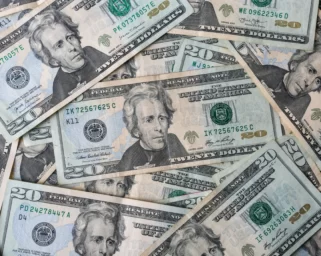Former Cambridge Analytica employee Brittany Kaiser has told The New York Times the firm was working with Macau based gaming company Dragon Corp to launch Dragon Coin, an initial coin offering (ICO) backed by notorious Asian underworld figure “Broken Tooth” Wan Kuok-koi’.
Cambridge Analytica is the UK firm behind the massive Facebook personal data collection scandal that is said to have affected some 87 million users. The firm was said to be interested in launching its own ICO, as a way to “monetize personal data”.
An ICO is a way to generate capital by selling early investors a soon to be released cryptocurrency or “coin” at a discounted rate. Investors jump on board speculatively hoping once the coin is released it will dramatically increase in value.
Ms. Kaiser, who has since distanced herself from Cambridge Analytica and testified about the firms shady dealings before the House of Commons in the UK, explained that Cambridge Analytica’s aim was to help people store and sell their own personal data to potential advertisers, in effect limiting the negative effects of what the firm itself did when it mined facebook users date to create psychological profiles of voters in an attempt to allow supporters of a particular political candidate to target those voters online and sway their vote.
The firm, which had been hired by the Trump campaign, had even previously boasted it helped Trump win the election.
The ICO world, which has been operating in a legal and ethical grey area, has come under increasing scrutiny from regulators concerned of it being used by scammers, organized crime, terrorists and other nefarious actors.
The Cambridge Analytica link to Dragon Coin and its alleged backers has added yet another chapter to this ongoing drama.
The Dragon Coin myth
Over the last few years companies have raised over $6 billion through different ICOs, with more going live almost daily. The market itself is enormous and truly global. One of the attractions of the cryptocurrency world is that by its very nature it is decentralized, transcends national borders, governments and central banks and is nearly completely anonymous.
Dragon Coin, which received some $300 million from investors last fall, is just one of many cryptocurrency ideas put forth by actors in the casino industry seeking to be able to move money more freely in the world of international casino gambling. Designed as a coin to be used by gamblers, Dragon Coin’s initial intent was to help players move their money in and out of Macau bypassing the watchful eyes of the Chinese authorities.
While The New York Times reports that Cambridge Analytica has little role in actually promoting the launch of Dragon Coin, the company was active behind the scenes, plying potential investors with lavish all-expenses-paid trips to Macau for Dragon Coin events.
Ties to organized crime
At one event in particular, the South China Morning Post published a photograph of infamous 14K triad organized crime boss “Broken Tooth” Wan Kuok-koi’ at one of these very events. The Macau gang leader had been released from prison after a 14-year prison sentence in 2012.
Speaking to Business Insider, Dragon Coin founder Chris Ahmad said that “Broken Tooth” Wan “is not involved in Dragon, and he is not financing Dragon in any way.”
Further investigation by The New York Times however, uncovered documents that were sent to potential investors with Wan’s picture and listing him as a sponsor of the ICO. The documents were sent by Dragon Coin co-founder Paul Moynan and Ms. Kaiser was part of the mailing list. Moynan even sent out a further mailer, highlighting Wan as one of the most prominent supporters of the project.
As the project progressed, as in so many ICOs, benchmarks came and went with few actual developments. The company was using investor’s money to sponsor a formula E racing car team and a team set to climb Mt. Everest, even as the date of prominent app launches came and went with nothing to show. The company announced in September that it had partnered with Visa to release a card connected to the coin. A visa spokesperson said no such partnership existed or had been approved.










